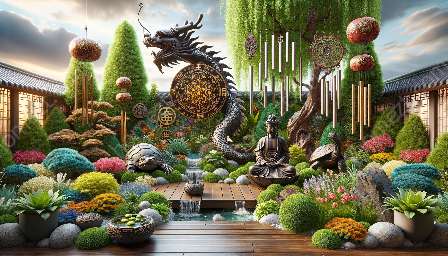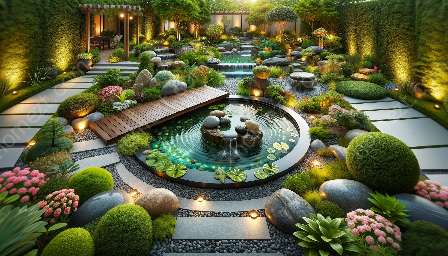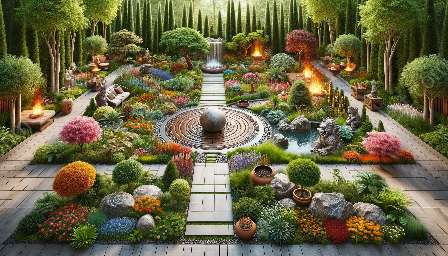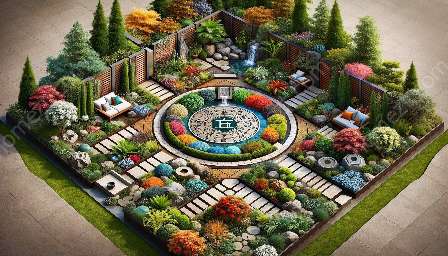In feng shui, the placement of plants and trees in the garden is essential for achieving a harmonious and balanced environment. The principle of feng shui aims to create a balanced flow of energy, known as chi, within a space. The strategic placement of plants and trees in the garden according to feng shui principles can enhance the overall energy and create a serene and peaceful atmosphere.
Understanding Feng Shui in Gardening
Feng shui is an ancient Chinese practice that focuses on creating harmony and balance in one's surroundings. When applied to gardening, feng shui principles can help create a tranquil and positive energy flow within the garden. It takes into consideration the layout, design, and placement of plants, trees, and other elements to harness auspicious chi and enhance the overall well-being of the space.
The Importance of Plant and Tree Placement
According to feng shui, the placement of plants and trees in the garden can either promote or hinder the flow of chi. It is believed that the energy of plants and trees can affect the energy of the surrounding environment, and therefore, their placement is crucial.
Balancing Yin and Yang
In feng shui, the concept of yin and yang is important for achieving harmony. When placing plants and trees, it is essential to consider the balance of yin (feminine, passive energy) and yang (masculine, active energy) elements. For example, mixing tall and upright plants (yang) with softer, flowing plants (yin) can create a harmonious balance in the garden.
Utilizing the Five Elements
Feng shui incorporates the five elements – wood, fire, earth, metal, and water – to maintain balance and harmony in the environment. When placing plants and trees, it is beneficial to consider the elemental associations of each plant and how they interact with the garden's overall energy. For example, wood element plants may represent growth and vitality, while water element plants can symbolize tranquility and purification.
Tips for Placing Plants and Trees According to Feng Shui
When arranging plants and trees in the garden based on feng shui principles, consider the following tips:
- Location: Position plants and trees in locations that allow for a smooth flow of energy throughout the garden. Avoid blocking pathways or creating cluttered areas that disrupt the energy flow.
- Balance: Strive for a balanced arrangement of plants and trees, incorporating a mix of yin and yang elements to create a harmonious environment.
- Shape and Form: Pay attention to the shapes and forms of plants and trees. Variations in height, texture, and color can add diversity and enhance the visual appeal of the garden while contributing to the overall feng shui balance.
- Elemental Considerations: Take into account the elemental properties of plants and trees and how they contribute to the garden's energy. Incorporate a variety of elements to maintain a holistic balance.
- Focal Points: Create focal points in the garden with strategically placed plants and trees. These focal points can draw attention and help direct the flow of energy within the space.
Enhancing Your Garden with Feng Shui
By applying feng shui principles to the placement of plants and trees in the garden, you can create a harmonious and tranquil outdoor space that promotes positive energy flow and supports overall well-being. Whether you are designing a new garden or reconfiguring an existing one, the art of feng shui in gardening offers valuable insights into creating a nurturing and balanced environment.
Conclusion
The placement of plants and trees in the garden according to feng shui principles serves as an integral aspect of creating a harmonious and balanced outdoor space. By understanding and applying feng shui principles in gardening, individuals can harness the flow of positive energy, enhance the visual appeal, and promote well-being within their gardens. The art of feng shui in gardening offers a powerful framework for creating serene and tranquil outdoor environments that harmonize with nature and support overall harmony and balance.
















